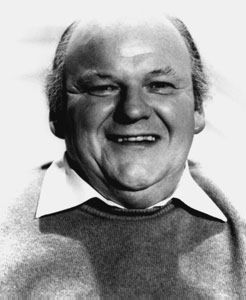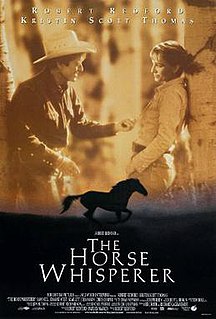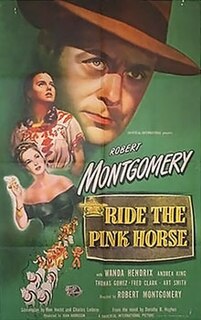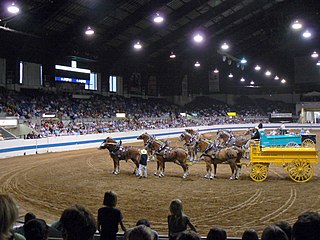
Roy Mitchell Kinnear was an English character actor. He is known for his roles in films directed by Richard Lester; including Algernon in Help! (1965); Clapper in How I Won the War (1967); and Planchet in The Three Musketeers (1973), reprising the latter role in the 1974 and 1989 sequels. He is also known for playing Private Monty Bartlett in The Hill (1965), Henry Salt in the 1971 film Willy Wonka & the Chocolate Factory, and cruise director Curtain in Juggernaut (1974).

Wildboyz is an American television series. It is a spin-off and follow-up to Jackass. Wildboyz debuted in 2003 on MTV, and moved to MTV2 in its third season. Steve-O and Chris Pontius are the stars of the show, who perform stunts and acts with animals, often putting themselves in situations for which they are not trained. The two are both stars of the hit movies Jackass: The Movie, Jackass Number Two and Jackass 3D. They travel to different parts of the globe, performing their stunts in exotic environments while educating their audience on wildlife and local culture.

Bo Derek is an American film and television actress, film producer, and model perhaps best known for her breakthrough film role in the sex comedy 10 (1979). She was directed by husband John Derek in Tarzan, the Ape Man (1981), Bolero (1984) and Ghosts Can't Do It (1989), all of which received negative reviews. A widow since 1998, she lives with actor John Corbett. Now in semi-retirement, she makes occasional film, television, and documentary appearances.

The Horse Whisperer is a 1998 American drama film directed by and starring Robert Redford, based on the 1995 novel The Horse Whisperer by Nicholas Evans. Redford plays the title role, a talented trainer with a remarkable gift for understanding horses, who is hired to help an injured teenager and her horse back to health following a tragic accident.

Crazy Horse was a Lakota war leader of the Oglala band in the 19th century. He took up arms against the United States federal government to fight against encroachment by white American settlers on Native American territory and to preserve the traditional way of life of the Lakota people. His participation in several famous battles of the Black Hills War on the northern Great Plains, among them the Fetterman Fight in 1866 in which he acted as a decoy and the Battle of the Little Bighorn in 1876 in which he led a war party to victory, earned him great respect from both his enemies and his own people.

Ride the Pink Horse is a 1947 film noir crime film produced by Universal Studios. It was directed by the actor Robert Montgomery from a screenplay by Ben Hecht and Charles Lederer, which was based on a novel of the same name by Dorothy B. Hughes. The drama also features Montgomery as the main character. Thomas Gomez was nominated for a Best Supporting Actor Oscar for his performance.
The Enumclaw horse sex case was a series of incidents in 2005 involving Kenneth Pinyan (1960–2005), an engineer that worked for Boeing and resided in Gig Harbor, Washington; James Michael Tait, a truck driver; and unidentified other men. Pinyan and Tait filmed and distributed zoophilic pornography of Pinyan receiving anal sex from a stallion under the alias "Mr. Hands". After engaging in this activity multiple times over an unknown span of time, Pinyan received fatal internal injuries in one such incident.

The Man from Snowy River is a 1982 Australian drama film based on the Banjo Paterson poem "The Man from Snowy River". Released by 20th Century Fox, the film had a cast including Kirk Douglas in a dual role as the brothers Harrison and Spur, Jack Thompson as Clancy, Tom Burlinson as Jim Craig, Sigrid Thornton as Harrison's daughter Jessica, Terence Donovan as Jim's father Henry Craig, and Chris Haywood as Curly. Both Burlinson and Thornton later reprised their roles in the 1988 sequel, The Man from Snowy River II, which was released by Walt Disney Pictures.

The Umbrella Academy is an American comic book series created and written by Gerard Way and illustrated by Gabriel Bá. The first six-issue limited series, The Umbrella Academy: Apocalypse Suite, was released by Dark Horse Comics, between September 14, 2007, and February 20, 2008. It won the 2008 Eisner Award for Best Finite Series/Limited Series. A second series, The Umbrella Academy: Dallas, followed in 2008. The first issue of a third series, The Umbrella Academy: Hotel Oblivion, was released on October 3, 2018. A proposed fourth series is in development. On February 15, 2019 a television adaptation premiered on Netflix.

Draft horse showing refers to horse shows exclusively for horses of the draft horse breeds. In North America, though a small number of draft horses are also shown under saddle, the term "Draft horse showing" refers to a specific horse show competition that primarily features driving exhibitors presenting their horses to be judged in harness. Worldwide, some draft horse shows also feature riding classes.

A Thousand and One Nights is a 1969 adult anime feature film directed by Eiichi Yamamoto, conceived by Osamu Tezuka. The film is part of Mushi Production's Animerama, a series of films aimed at an adult audience.

A Man Called Horse is a 1970 American-Mexican Western film starring Richard Harris and directed by Elliot Silverstein. It is based on the short story "A Man Called Horse" by the Western writer Dorothy M. Johnson, first published in 1950 in Collier's magazine and again in 1968 in Johnson's book Indian Country. The basic story was used in a 1958 episode of the TV show Wagon Train titled "A Man Called Horse". Partially spoken in Sioux, the film tells the story of an English aristocrat who is captured by the Sioux people.
Six Reasons Why is a 2008 film directed by The Campagna Brothers. It stars Daniel Wooster as the Nomad, a vigilante sent into the badlands by a preacher. He wanders the Badlands with his horse, killing every stranger he meets. Christopher Harrison plays an orphaned entrepreneur who is trying to cross the Badlands along with his indentured servant the Sherpa, played by Mads Koudal.

Triumphs of a Man Called Horse is a 1983 American-Mexican-Canadian Western film directed by John Hough and starring Richard Harris, Michael Beck and Ana De Sade. Harris reprised his role as British aristocrat John Morgan, 8th Earl of Kildare, who becomes a member of the Lakota Sioux. It was the final film of the trilogy after A Man Called Horse (1970) and The Return of a Man Called Horse (1976).
High Lonesome is a 1950 American Technicolor Western film, period movie, written and directed by Alan Le May, who is famous as the writer for the classic Westerns The Searchers and The Unforgiven. It is his only directing credit. This film stars John Drew Barrymore and features Chill Wills and Jack Elam. It is set in the Big Bend country of West Texas.

The First Auto is a 1927 film about the transition from horses to cars and the rift it causes in one family. It stars Charles Emmett Mack and Patsy Ruth Miller, with Barney Oldfield having a guest role in the movie. While mainly a silent film, it does have a Vitaphone sound-on-disc soundtrack with a synchronized musical score and sound effects, as well as three spoken words and some laughter.

The Walking Hills is a 1949 contemporary western film directed by John Sturges and starring Randolph Scott and Ella Raines. The film's plot has film noir elements in its story of a search for an old treasure by nine men including a detective tracking a fugitive, several others who have things to hide, and a love triangle involving the two leads and the fugitive.
Grace Gua Ah-leh is a Taiwanese actress and singer. Gua has portrayed over 200 roles in film and television since 1965. She has won the Golden Horse Awards 4 times and the Golden Bell Awards twice.














